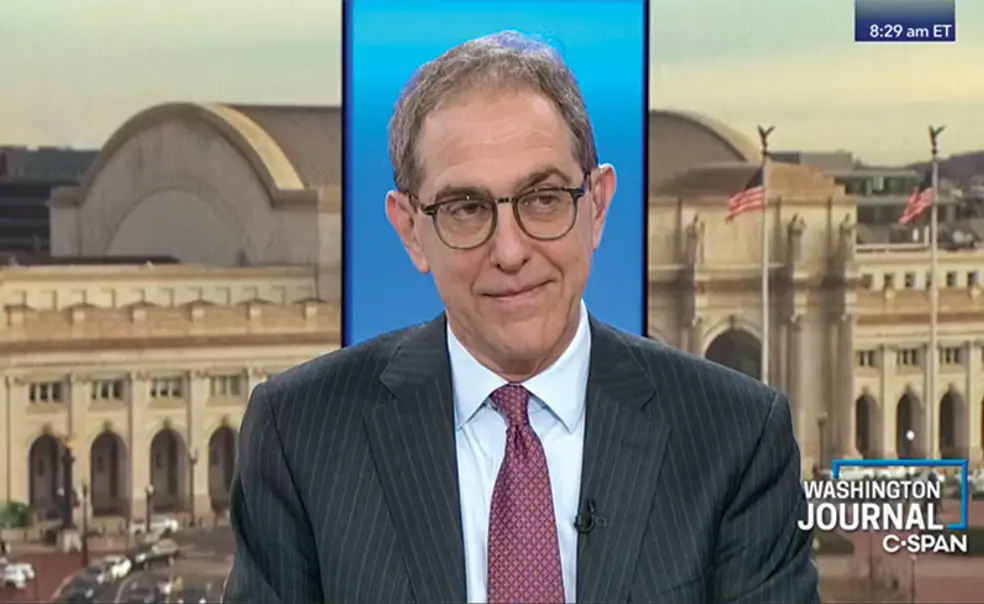The Cost of a College Degree Is Going Down
Conventional wisdom in America holds that the cost of college rises faster than inflation. That was once so — but it has not been true for a long time.
I was therefore glad when C-SPAN anchor Mimi Geerges gave me an opportunity to bust the myth. I appeared on C-SPAN’s “Washington Journal” in early December.
She asked me why “a college degree … continues to get more and more expensive, outpacing inflation.”
I replied that the cost of a college degree was in fact going down.
“Tuition itself has been going up,” she insisted.1
But financial aid and other discounts have also been going up, way up. And once we take financial aid into account, the inflation-adjusted tuition price — tuition and fees minus grant aid — has been decreasing for more than a decade at both public and private institutions.
According to College Board data published this October, the inflation-adjusted net price for tuition and fees at private campuses nationwide decreased 12 percent from about $18,700 to an estimated $16,510 over the last ten years. It peaked in 2006.
At public institutions, it dropped 40 percent from about $4,100 to an estimated $2,480 in the last decade. Net tuition and fees peaked at public schools in 2012.2
If you add housing and food expenses for residential students, the total cost still dropped over the same period by 5 percent at private schools and by 8 percent at public schools.
Over the last five years, even tuition sticker prices — in other words, tuition charges not adjusted for financial aid — have increased more slowly than inflation at America’s public colleges and universities.
Here are some more findings from the College Board: A smaller share of students are borrowing than was the case ten years ago. For those who do borrow, debt levels have also dropped.3
Surprised? It is not your fault. Editors and pundits love to generate articles about rapidly rising college costs.
Those stories grab more attention than do stories about how college administrators are holding down costs or increasing financial aid to make education affordable.
Myths about the cost of college are not only false but dangerous. They may cause families to overestimate the cost of college and students to miss out on a life-changing education. They may also lead people to propose bad policies designed to correct problems that do not exist.
For example, C-SPAN’s anchor asked me whether universities should be required to use their endowments to reduce the cost of college. We already do — which is one reason why America’s endowment-driven colleges and universities are among the country’s most affordable.
The average real price to attend schools with large endowments such as Princeton’s has dropped by about half for middle-income families over the last ten years, according to a University analysis using federal and publicly available data. Fewer than 10 percent of undergrads have federal loans at the best-endowed schools, on average, compared with nearly half of students at public and private campuses with smaller endowments.
Indeed, at every family income level but the highest, it’s less expensive to attend schools with bigger endowments than with smaller endowments. If more people knew the truth about the good these endowments do, perhaps we wouldn’t have to fight misguided proposals to erode them through taxation.
At Princeton, most undergraduate families with incomes up to $200,000 pay no tuition, and those with incomes up to $100,000 also get free housing and dining. Many families with incomes up to and even beyond $300,000 receive grant aid. Our affordability numbers are especially impressive, but the College Board data make clear that many colleges and universities have good stories to tell.
Some journalists are at last taking note. “The Cost of College Tuition Is Shrinking,” declared The Chronicle of Higher Education in October. “You May Not Need to Borrow as Much to Pay for College,” proclaimed The Washington Post. “The Cost of College Is Quietly Going Down,” reported The Hill.4
“Quietly” is not good enough.
Students and families are making decisions about whether to pay for a college education. Legislators are considering awful policies that might tax scholarships or impede research. To make the right choices, they need facts, not myths.
Princetonians know the value of a college degree, and we all need to tell that story, loudly and often.
1 https://www.c-span.org/video/?540277-4/christopher-eisgruber-higher-education-america [the relevant clip is at roughly 2:45 to 3:15]
2 https://www.forbes.com/sites/michaeltnietzel/2024/10/22/college-tuition-increased-less-than-inflation-again-this-year/; https://research.collegeboard.org/trends/college-pricing/highlights
3 College Board, Trends in College Pricing and Student Aid 2024, https://research.collegeboard.org/media/pdf/Trends-in-College-Pricing-and-Student-Aid-2024-ADA.pdf
4 Dan Bauman, “The Cost of College Tuition Is Shrinking,” The Chronicle of Higher Education (October 21, 2024) https://www.chronicle.com/article/the-cost-of-college-tuition-is-shrinking/; Danielle Douglas-Gabriel, “You May Not Need to Borrow as Much to Pay for College,” The Washington Post (October 27, 2024) https://www.washingtonpost.com/education/2024/10/27/borrowing-for-college-tuition-trends/; Lexi Lonas Cochran, “The Cost of College Is Quietly Going Down,” The Hill (October 29, 2024) https://thehill.com/homenews/education/4957713-college-costs-tuition-student-debt-relief/












1 Response
Brian W. McAlindin ’80
1 Year AgoDecades of Rising Costs in Higher Education
We can all agree with President Eisgruber ’83 that “Princetonians know the value of a college degree,” and we are eager to share that truth. The contention that the cost of a college degree is going down, however, is not supported by the facts. Mr. Eisgruber appears to be saying that the level of aid received by Princeton students has kept up with the rising costs, indeed a tribute to strong alumni support. The facts suggest that due to the increased rate of inflation over the last five years, college tuition has not outpaced inflation for a change. To suggest the cost is now “going down” and that the dramatic increase in the cost of higher education over the past four decades has not been astronomical is telling a “story” and not the truth.